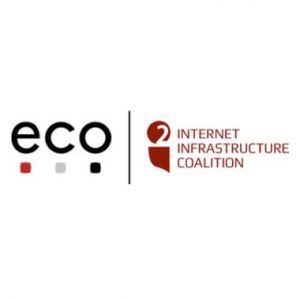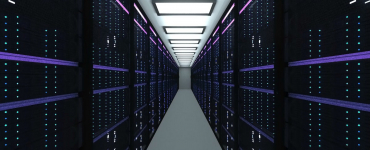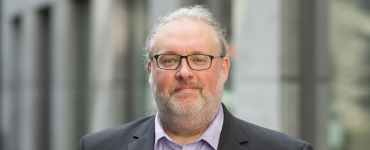Regardless of where we are on the Internet, a third party is almost always involved as a technological enabler.But what liability does that third party have in circumstances of perceived or actual wrongdoing? Right now, intermediary laws which widely originated in the late 90’s and early 2000’s are being reconsidered in both the U.S. and the EU. In the U.S., this specifically relates to plans to overhaul Section 230 of the Communications Decency Act, while in the EU, such discussions revolve around building the Digital Services Act.
On 15 October 2020, a transatlantic dialogue was held to help shape such developments. The dialogue was jointly hosted by the European-based eco – Association of the Internet Industry (eco Association) and the U.S.-based Internet Infrastructure Coalition (i2Coalition), and brought together renowned Internet industry experts from both sides of the Atlantic.
The objective of this dialogue was two-fold: to learn about the current discussion on U.S. intermediary liability from the NTIA – that is, the U.S. Executive Branch agency with responsibility for advising the President on telecommunications and information policy issues; and to consider insights from both sides of the Atlantic concerning how changes in how intermediary liability is handled could impact on the Internet as a tool that keeps us all connected.
Intermediary liability in the U.S.
Looking back to the 1990’s, as more and more people connected to the Internet, there was a widespread recognition of how empowering the media could be, with mass communications no longer limited to a few media companies. However, as Adam Candeub of the NTIA pointed out over the course of the dialogue, a conundrum was presented in the U.S. by the famous Stratton Oakmont case. Here, the court ruled that platforms become publishers when they decide to edit or curate user-generated content in order to remove obscene or threatening content. To resolve this, in 1996, Congress passed Section 230 of the Telecommunications Act, which released platforms from legal liability when they edited – but only for very specific content.
The U.S. administration now holds the view that the vision of Section 230 has been changed significantly, leading platforms to argue that they have immunity for any decisions they make about content. In May 2020, President Donald Trump issued an executive order on preventing online censorship – an order seeking a clarification of Section 230’s ambiguities. If this pans out, Candeub believes that, “Section 230 will once again protect freedom of expression while holding dominant platforms accountable for their editorial decisions.”
Perspective of two U.S. companies
In emphasizing the importance of intermediary liability, Melinda Clem from Afilias and Chair of i2Coalition, described how companies such as hers realize that, “while the role we play in the Internet is important, how we operate with other companies and the expectations that are put on us from our users are of equal importance.” For objectionable content, companies such as Afilias have terms of services and appreciate the protection that they have under Section 230 today to remove damaging and offensive material. David Snead, General Counsel for cPanel, contended that changes proposed to Section 230 could impact SME businesses more than large platforms with more resources. As such, Snead expressed the hope that “discussion about the difference between platform regulation and network regulation would be advanced with a view to leading to positive policy developments.”
Intermediary liability in the EU: The Internet industry perspective
Turning to Europe, Oliver Süme, eco Chair of the Board, pointed out that for two decades now, “intermediary liability has been one of the cornerstones of the European Internet industry and has its roots in the 2000 e-Commerce Directive.” Süme reported on a very vibrant discussion that is currently taking place concerning a revision of the Directive’s intermediary liability system: “In Europe, the growing social and economic importance of online and social media platforms is giving rise to the need for a much more specific legal framework, given that the liability regime in the e-Commerce Directive does not specifically address platforms. This has led to a multitude of rulings having to be made, causing huge legal uncertainty for many players in the past 20 years.” Of particular concern to the Internet industry is the increasing shift of decisions from courts or law enforcement authorities to the private sector. As Süme emphasised, this development is giving rise to a conflict of fundamental rights.
To address this situation in Europe, the European Commission is working on the Digital Services Act (DSA), which is, among other objectives, set to revise the intermediary liability system. Süme sees a need for the DSA to deal explicitly with online platforms, arguing that, “It would make sense to introduce a new category of services and define their role in terms of liability.” However, Süme also finds it very important to stick to the categories that Europe already has in the e-Commerce Directive for hosting provider services, such as the “no monitoring” principle.
Ensuring that reform efforts facilitate transatlantic trade
Each and every speaker at the dialogue was of the view that, in going forward, harmonising systems between national approaches would be a very positive development. Moving into the future, common ground needs to be created in the development of legal frameworks in the U.S. and in the EU. The Privacy Shield could be used here as a form of prototype. While the situation regarding the Privacy Shield is admittedly currently difficult, it has nevertheless proven that the U.S. and the EU can work together on frameworks that will accommodate differences in cultural approaches to problems and standards.
The dialogue culminated with the shared view that the best path forward is through continued open discussion, with both the i2Coalition and the eco Association committed to facilitating this process.
To bring the discussion to the next level, a second transatlantic dialogue webinar is planned to take place later this year. This second dialogue will focus on intermediary liability in the European Union.
For a more in-depth insight into the first transatlantic dialogue on intermediary liability, read the full report here.




